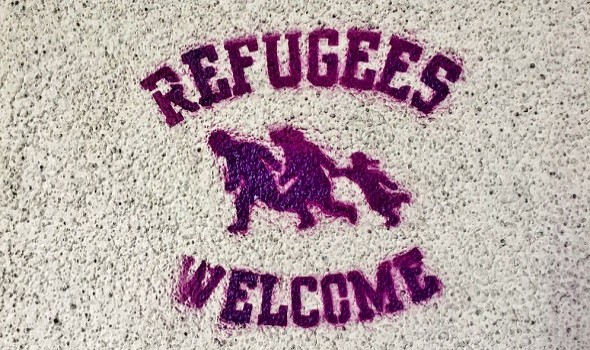Protecting protection
Protecting protection

Home Secretary Priti Patel’s proposed “biggest overhaul of the UK’s asylum system in decades” is based on false premises – particularly on the actual availability of legal routes – and tears apart the principle of the right to claim asylum.
The proposals create a two-tier system that punishes those who manage to find their own route to safety and condemns them to a life in limbo with restricted rights.
People fleeing persecution and death have the right to seek sanctuary. That is the starting point, and no policy should undermine it. We are dealing here with human beings: they cannot be treated like commodities.
The government’s rhetoric about people smugglers is a diversion. Smugglers are irrelevant in this equation: they are the product of current policies, opportunistically filling a gap in the market. Legal routes would put them out of business.
We welcome the Home Secretary’s statement that the government will work towards the creation of safe and legal routes, and we look forward to the details. From years’ working with asylum seekers and refugees we know that the reality is that currently it is near impossible to find legal routes.
The sole example of safe routes given by the Home Secretary is the current international resettlement scheme that can and does work but is also fraught with problems. Only a small fraction of those who need sanctuary are able to use this route - one per cent of those recognised by the United Nations. The other 99 per cent are left abandoned for years in harsh conditions.
Our fear is that the government will use the resettlement scheme to severely reduce the number of people accessing protection in the UK and create offshore asylum processing centres that leave vulnerable people stuck in precarious situations for years.
Without establishing legal routes the proposal will establish a second class of refugees whose rights will be taken away and who will be subjected to a permanent threat of deportation.
The idea of the two-tier system is dangerous.
It runs counter to every human instinct and every treaty and law on international protection that allows you to seek safety in any way possible. In reality, most of those ways are clandestine.
The proposed rules would not have stopped the father wanting to join his wife and three children in Scotland even though he passed through Italy on his way and was told he had to return there. Or the teenager in France refused permission to join her parents in Britain. Or the Iranian, one of many smuggled to the UK without being told of their final destination.
People who are oppressed, desperate and fleeing for the life, will not know the details of British regulations.
While we call for more legal and safe routes and for an improvement on existing resettlement routes, it is unacceptable to punish those who are simply trying to reach safety: it is what anyone of us would do.
Photo credit: Refugees Welcome by edu aguilera / CC BY-NC 2.0


